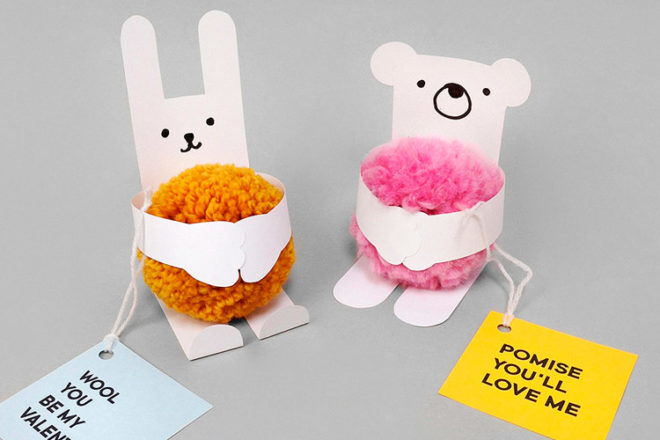
There are many types of wine jigsaw puzzles. Some feature information on the grape varieties and regions in which wine is made. Others include descriptions of key characteristics and aromas of various wines as well as suggestions for food pairings. Some have artwork depicting France's wine regions.
Water & Wines
The Water & Wines jigsee jigsaw puzzle is a fantastic way to explore the world wine. It was created by a world-renowned Sommelier. The puzzle is visually stimulating and educational. You will also find grape profiles and tips for food pairings from some of the best sommeliers in the world.

Tim Bulmer's artwork
These wine jigsaw puzzles are a great way to have fun with wine and enjoy creating art. Tim Bulmer, a British artist with a talent for creating whimsical artwork that will make your smile, is Tim Bulmer. His humor is a great asset for those who enjoy joking around.
French wine regions
French wine jigsaws are a great way for you to learn more about French wine. These puzzles provide key information about key grape varieties and key characteristics as well as tips on food pairing. You will also find information on French geography.
Italian wine regions
These puzzles are perfect for wine lovers. The designs are gorgeous and very challenging. These designs include stunning photographs, illustrations, and celebratory quotes. There is sure to be a puzzle for everyone, regardless of whether they are wine lovers or novices.
A wine cork puzzle is a challenge!
Wine cork puzzles are great for wine enthusiasts who love puzzles. It's a 1,000-piece puzzle with pictures of a variety wine bottles. It is almost 2 feet wide by 2 feet high. It makes a great gift, especially for family members who like wine.

Learning about wine regions through jigsaw puzzles
It can be both fun and educational to learn about wine regions. Jigsaw puzzles can help with this. Many jigsaw puzzles include maps that provide information about key characteristics and aromas for different wine varieties. Some puzzles also include suggestions for food pairings!
FAQ
What are your top hobbies?
It's the hobbies you are most passionate about that make you happy. It will be easier to continue doing what you love if you are passionate about your work. You'll also have an excuse when you're not feeling well or tired!
There are many hobbies that we all enjoy: gardening, painting and crafts; photography; cooking; sports and games; reading music and film-making; collecting; cycling, walking, dancing and writing; playing instruments and other musical instruments.
Volunteering could be a great option.
You might be looking for something more adventurous. Try scuba diving, rock climbing or parasailing.
If you want to go further afield, there are plenty of unique ways to spend time in nature. These include caving, cliff diving, cave tubing, abseiling, sea kayaking, rafting, canoeing, climbing, trekking, bushwalking, mountaineering, backpacking, trail running, orienteering, off-road driving, quad biking, motorcycling, motorcycle riding, dirt bike riding, jet boating, hang gliding, hang gliding, parachuting, hang gliding, heli-skiing, ice skating, snowmobiling, snowshoeing, snowshoeing, cross country skiing, downhill skiing, telemark skiing, ski touring, sled dog racing, snowboarding, snowkiting, snowmobiling, spelunking, snowshoe hiking, snowshoeing and many more.
What does it cost to have a hobby?
A hobby costs nothing but time. If you're serious about your hobby, it can take you years to get what you want.
But there is one thing that can help you. It's called "passion." If you are passionate about what you do, it will be easier to work hard and make progress.
You may become addicted to the activity once you have put in enough hours. This is where the real fun begins. Because now you are doing something you enjoy, and you are getting better at it all the time. So by the end of the year, you will probably have made quite an improvement.
Do not worry about the time it takes. Give it a shot. You may be surprised!
Is it possible making a living as a hobby?
Not necessarily.
However, if you're interested in creating a business based on your hobby, then you could definitely end up being wealthy.
Let's assume you like cooking. You love healthy food and decided to open a restaurant.
You only prepare organic meals from scratch. To cover the labor and ingredients costs, you will charge your customers a small service fee.
You will eventually be able to grow your client base and hire people who are willing to work with you.
You may eventually add vegan dishes and gluten-free options to your menu.
In this situation, you have a successful business which has allowed you the freedom to lead the lifestyle that you want.
Of course, this doesn't mean you must give up your day job.
You could instead run your own restaurant and still hold your 9-5 job.
Statistics
- Studies show that just six minutes of reading can reduce stress levels by 60 percent. (oberlo.com)
- 37% Video Games 36% Travel 36% Health and Fitness (quizexpo.com)
- In comparison, men in the “no humor” condition were refused 84.6% of the time and were only accepted 15.4% of the time. (time.com)
- Almost 80% of people claim to have no hobby. (hobbylark.com)
- A new survey by Pew Research Center of teens ages 13 to 17 finds that 36% of girls feel tense or nervous about their day every day; 23% of boys say the same. (pewresearch.org)
External Links
How To
How to learn a musical instrument
There are many options for learning how to play the piano. There are many options. You can go to school, purchase a book, learn from an instructor, or watch videos online. Here are some tips and techniques to help you learn if your goal is to create your own learning path.
-
Find something that interests or appeals to you. You don't have to like every instrument you see. If you don’t enjoy playing an instrument it will be hard for you to get into it.
-
Be patient. Learning anything new takes some time. Expect to not be able master all things immediately. Instead, keep practicing every day.
-
Regular practice is important. You can do this even when it is hard. This will make sure you don't forget the lessons you have learned.
-
Find a quiet place to practice. The ideal place to practice is one that is quiet and won't be disturbed by anyone else. Also, make sure that there aren't too many distractions. For example, avoid having loud music playing nearby.
-
Have fun. Music should be enjoyed. So make sure that you always have fun while practicing. Enjoying yourself will motivate you to continue going at it.
-
Set goals. You will know what you need to do if you have goals. You will never be ashamed to fail.
-
Keep track of your progress. List all of your successes as well as your failures. This will help you to improve your performance over time.
-
Take breaks. Sometimes it is enough to just stop and think. Take breaks to allow you to reflect on things.
-
Ask questions. Ask questions. They may be in a position to assist.
-
Learn by listening. Musicians often listen to music they like and try to imitate it. This allows them to understand the basic ideas behind the song.
-
Read books. Read books to learn more than just watching videos or learning from classes. You will also find information in books that you won't find anywhere else.
-
Join a group. You will be able to practice more when you play with others. Plus, you'll meet people with the same interests as you.
-
View tutorials. Tutorials are short videos that give detailed information on a topic. These videos often focus on one aspect or part of the instrument. Tutorials can help you understand complex parts of your instrument.
-
Try different methods. Some prefer to learn by listening, while others prefer reading. Try different methods until you find the one that works for you.
-
Practice makes perfect. You don't become an expert overnight. It is important to put in a lot of effort before you can become skilled enough to perform well.
-
Get along with other musicians. Listening to others play your favorite songs can help speed up learning.